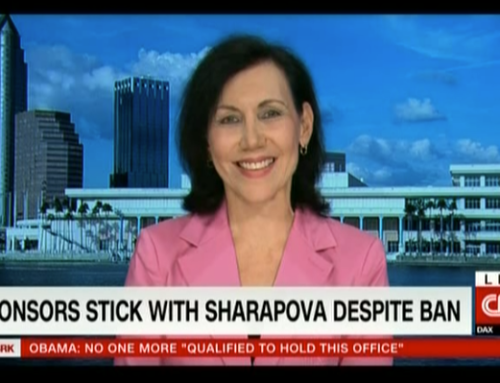“I don’t think humans are naturally averse to change. We’re a ‘grass is greener’ society. We like change, especially when we have some say in creating the change. But we’ve trained ourselves to be resistant to change at work. We know it sucks. ‘They’ have taught us this over and over. My work focuses on ‘Them’ and how they do change to ‘Us.’”
He is also the author of Change Project Management – The Next Step, The System for Change Leaders, The Skill Sets of a Change Leader, and Personal Brilliance: Mastering the Everyday Habits that Create a Lifetime of Success (AMACOM).
Q. I took the Personal Brilliance Quotient assessment and was told my quotient is 85. Is that good? (It sounds pretty sweet.) What does this assessment mean?
85 is a really good score – You’re Brilliant! We developed the PBQ to analyze where you are currently with the four catalysts to Personal Brilliance – Awareness, Curiosity, Focus, and Initiative. We then want to help you develop a personal journey toward polishing these catalysts in your life so the PBQ results help you jump into the Personal Brilliance book in a customized way.
Each of the four catalysts has a corresponding persona. If you are strongest in Awareness we call you a Prospector, if you are strongest in Curiosity we call you a Detective, if you’re strongest in Focus we call you a Chief Executive, and if you’re strongest in Initiative we call you an Action Hero. We’re looking for a seamless balance of all four catalysts. The assessment is less about the score and more about the start of your journey to expanding your Personal Brilliance and enhancing your Habit of Innovation. We work from the premise that you’re not broken and the PBQ provides some guidance for your development.
Did you consciously set out to become a professional speaker or did it just kind of happen?
From the very beginning of my career I have been involved in innovation and leading large organizational change. For some reason I was always the guy they kicked out front to tell everyone about it. I know most people would rather go to the dentist than speak to a group but it’s very natural to me. I love the challenge of making the connection and then providing impact and value for the audience. It’s a magical dance of group intellect blended with emotion. There is no better way to learn than to teach, and I learn something every day from my audiences.
What is the Laughter Arts and Sciences Foundation all about? Is that a charity to examine the mystery of why people think Dane Cook is funny? (Kidding. Though not about Dane Cook.)
It’s critical to me to be involved in a variety of things. A friend of mine, Steve Wilson, started The World Laughter Tour (www.WorldLaughterTour.com). I know it sounds funny, and it is. But it’s quite a serious undertaking. Steve trains thousands of people to lead therapeutic laughter sessions in places like long-term care facilities. It’s just laughter – no jokes by the way – which is treated like an exercise class and it has a tremendous impact physically and emotionally for these patients.
Of course laughter therapy is applicable to everyone. The foundation funds scientific study of laughter’s health effects and the education of more laughter leaders. I’m involved because it’s such a great example of Personal Brilliance and the foundation board meetings are a blast.
You write and speak a lot about the idea of “change.”? Why do you think it is that so many agree that change is necessary while at the same time being change averse?
I don’t think humans are naturally averse to change. We’re a “grass is greener”? society. We like change, especially when we have some say in creating the change. But we’ve trained ourselves to be resistant to change at work. We know it sucks. “They” have taught us this over and over. My work focuses on “Them” and how they do change to “Us.” How you go about leading the change can turn this cycle around. Our system – Change Project Management – The Next Step – proceduralizes a number of tools that change leaders can use to have a much greater chance of reaping the benefits of a change – an innovation, which is what it’s all about.
Ok, book plug time. I know the New York Times said some pretty good things about Personal Brilliance. But what do you think really sets your book apart from its peers?
There are a lot of books about innovation, but from a corporate, top-down perspective. I really believe strongly that while top-down innovation initiatives are important, if each individual optimizes their habit of innovation and comes together, the organization will be more innovative.
Personal Brilliance works with you individually, which is what has allowed it to go well beyond being a business book and is applicable to all aspects of our lives.





